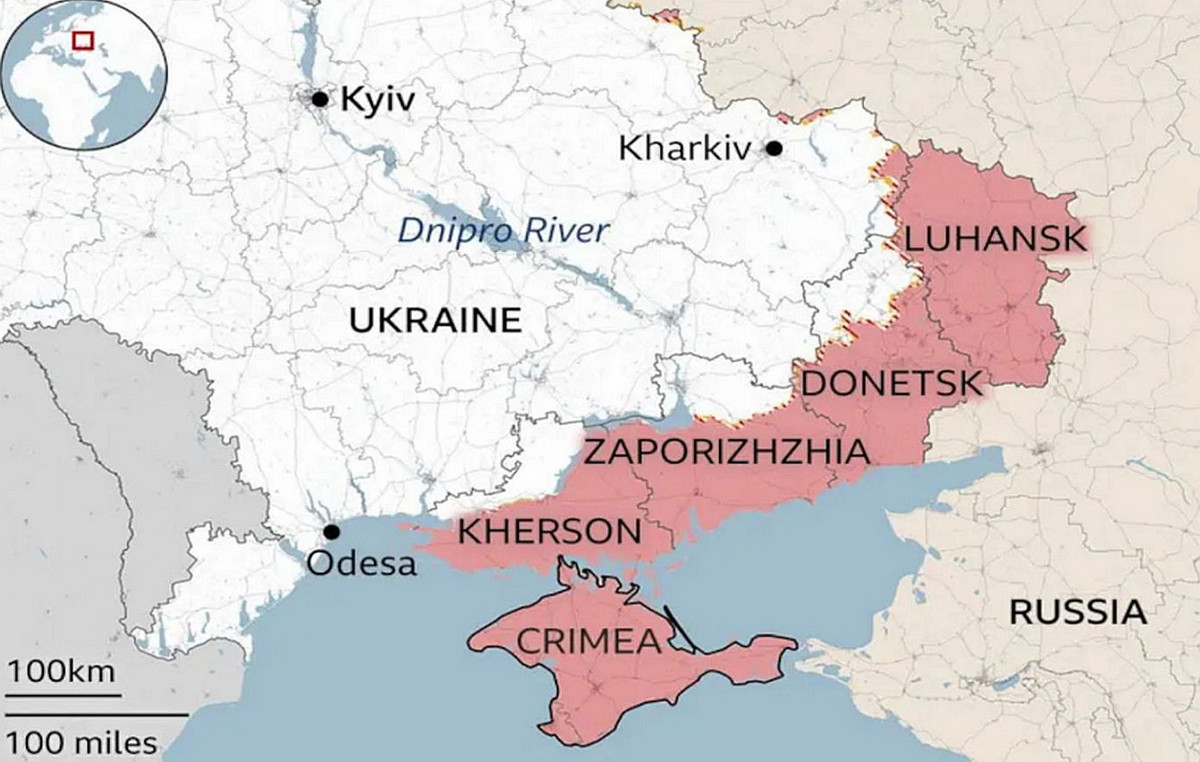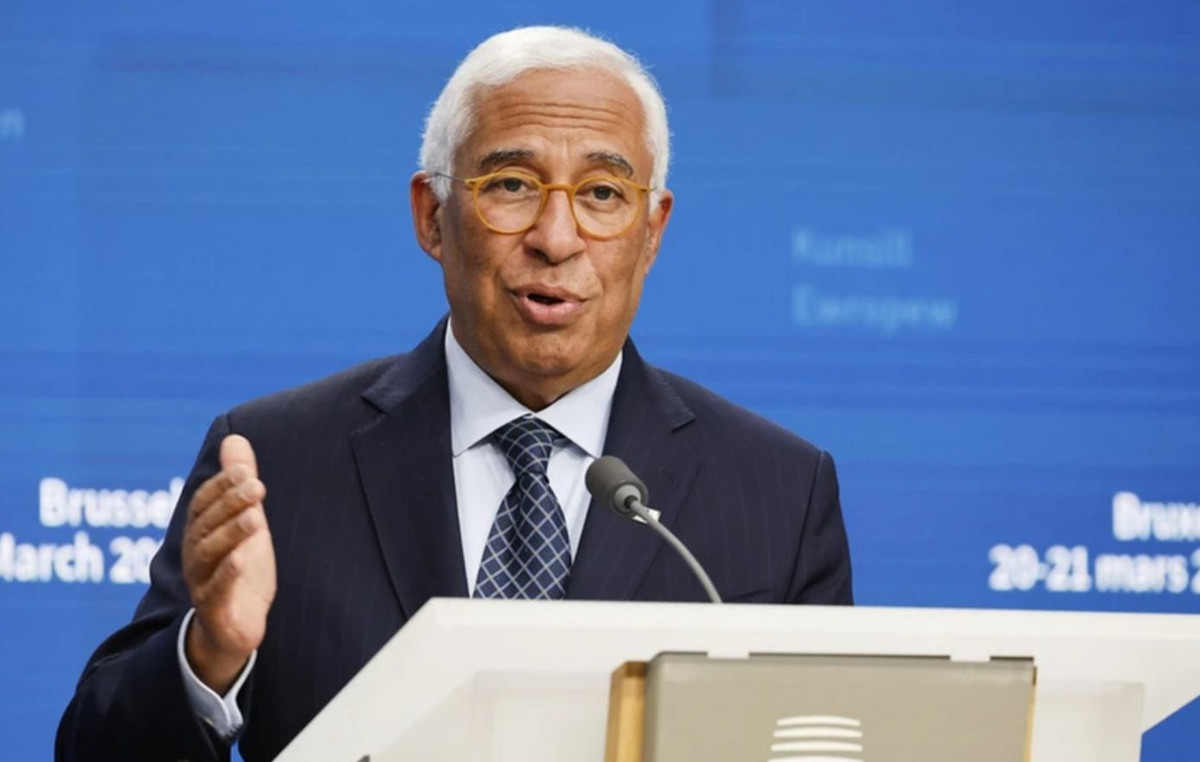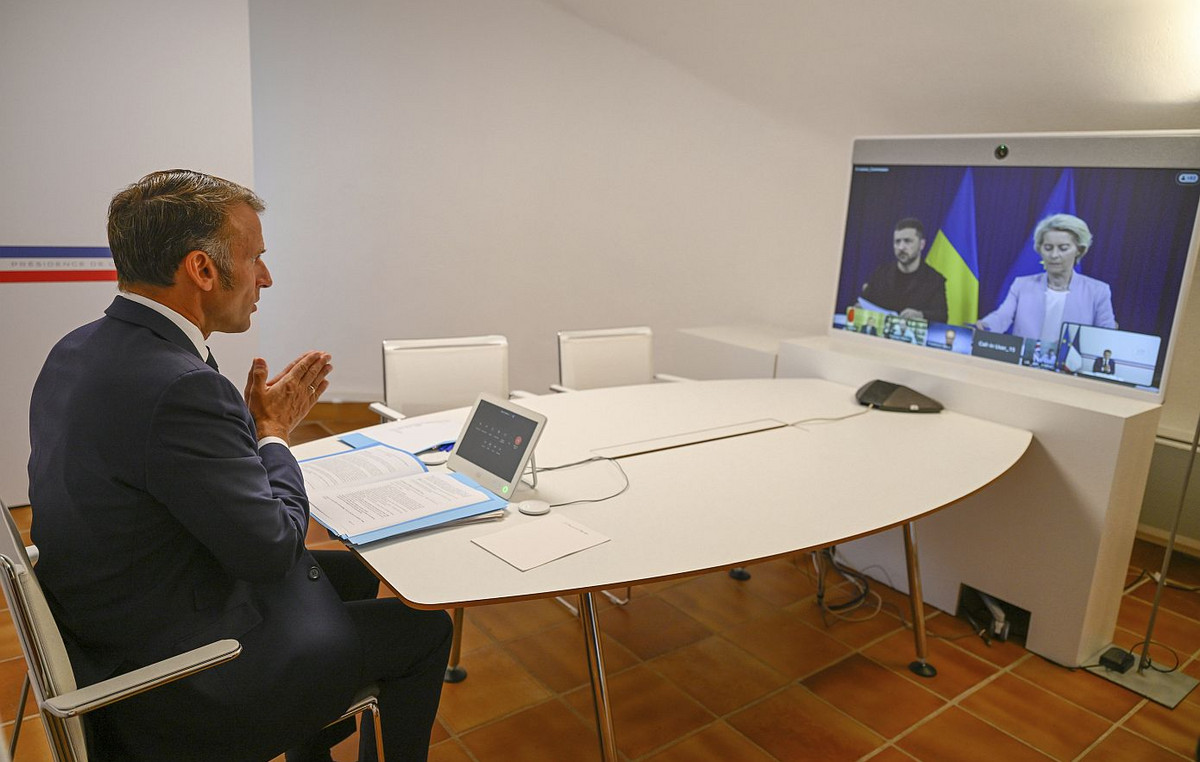United States President Joe Biden will visit Israel on Wednesday (18) amid the country’s war with the radical Islamic group Hamas. The trip poses significant risks for the North American leader, who seeks to avoid worsening the crisis in the Middle East.
Biden seeks to demonstrate firm support for Israel, which is trying to eliminate Hamas from the Gaza Strip, but, at the same time, is pushing for relief in humanitarian suffering in the region.
Biden’s advisers said he expressed strong interest in making the trip after being invited over the weekend by Israeli Prime Minister Benjamin Netanyahu, whom the American has known for four decades.
He spent Monday (16) at the White House deliberating about the trip with his main advisers on national security and information.
In Tel Aviv, Secretary of State Antony Blinken called a marathon session with senior Israeli officials to discuss opening Gaza to humanitarian aid and preventing civilians from being killed in Israel’s counteroffensive to Hamas terrorist attacks.
In announcing Biden’s trip after more than seven hours of negotiations, Blinken said the United States and Israel “agreed to develop a plan that will allow humanitarian aid from donor nations and multilateral organizations to reach civilians in Gaza.”
Biden’s visit will build on Blinken’s seven-country, multi-day visit to the Middle East at a time when the United States is trying to strike a delicate balance between unwavering support for Israel’s military operations and mitigating the humanitarian catastrophe in Gaza, preventing the war from spreading to other fronts.
Biden will “make clear that we want to continue to work with all of our partners in the region, including Israel, to obtain humanitarian assistance and, again, to provide some type of safe passage for civilians to exit,” the US spokesman said. National Security Council John Kirby on Monday night.
Before Biden’s visit, it was unclear whether progress had been made in opening Egypt’s Rafah crossing – the only viable route into Gaza. Blinken said the agreement to work on the plan was made at the request of the US, and they “welcome the Israeli government’s commitment to work on this plan.”
“It is critical that aid begins to reach Gaza as quickly as possible,” Blinken said, noting that the US shares “Israel’s concern that Hamas could seize or destroy aid entering Gaza or prevent it from reaching people who need it.”
“If Hamas in any way prevents humanitarian assistance from reaching civilians, including by confiscating the aid itself, we will be the first to condemn it. And we will work to prevent this from happening again,” he said.
Canceled meetings
The US President would also travel to Jordan, where he would meet King Abdullah II; President Abdel Fattah el-Sisi of Egypt; and the president of the Palestinian Authority, Mahmoud Abbas.
However, after an attack on a hospital in northern Gaza that left 200 to 300 people dead this Tuesday, Abbas canceled his presence. The meeting was then canceled by Jordan.
The three leaders condemned, in conversations with Blinken in recent days, the situation to which the Gaza Strip was subjected by Israel.
Travel risks
The security risks of a diplomatic visit to Israel were illustrated on Monday (16), when Blinken, during a meeting with Netanyahu, was forced to take shelter after aerial sirens warned of approaching missiles.
Official White House sources said they had carefully weighed the risks of a presidential visit and considered it safe enough to be carried out and announced in advance.
Visit of “strategic importance”
When considering Netanyahu’s invitation with his team, Biden realized the symbolism of his visit to Israel at this time.
In addition to a show of support for Israel, the trip will send a warning to other actors in the region, namely Iran and Hezbollah in Lebanon, not to become further involved in the conflict.
Furthermore, the Biden visit ties him more closely to the Israeli response in Gaza, including concerns about a growing humanitarian crisis, and could act as muted support for Netanyahu’s decisions.
The pressure on Biden to encourage war containment was evident Monday in front of the White House, where a large protest led by progressive Jewish groups urged him to press for a ceasefire. Loud chants could be heard from inside the gates.
The conflict forces a new assessment of the Biden administration’s immediate foreign policy priorities: the resurgence of violence in the Middle East will now occupy most of the president’s time, at least in the short term.
Although Biden has avoided encouraging a ceasefire (the word has not been used in the US response so far) he has issued warnings about protecting civilian lives, and spoke of this also during phone calls with Netanyahu.
Going to Israel in person could provide Biden (who has long advocated the importance of in-person meetings) an opportunity to convey these views to his Israeli counterpart, a leader with whom he believes he has a deep understanding.
Before the start of the Israel war, Biden and Netanyahu were planning a visit to the White House, a personal invitation that Biden made when the two last met in New York (photo at the top of the text).
In their phone calls, the two discussed the importance of respecting the rules of war. In an interview that aired on Sunday, Biden made his most public statement to contain the escalation of the war, saying it would be a “mistake” for Israel to try to reoccupy Gaza.
Speaking to journalists on Monday, a spokesperson for the Israel Defense Forces said Biden’s visit would have “strategic importance” for the entire Middle East.
“The highest US representative comes to Israel for a full report on the war in the Middle East and all the measures we have to take,” Rear Admiral Daniel Hagari told reporters.
“Right now, we are focused on Gaza and the measures we are going to take to prepare for war, and that is how we will progress,” he added.
US officials speak with their counterparts in the region
Since his first phone call with Netanyahu last weekend, Biden has expressed concern about the possibility of a northern front opening along Israel’s border with Lebanon, where Iran-backed Hezbollah has been sporadically involved. with Israeli forces.
U.S. national security adviser Jake Sullivan said Sunday that the administration was engaged in behind-the-scenes diplomacy with Tehran to send the same message it has publicly conveyed about not escalating the crisis.
For Biden and his team, the risks of a greater conflict include the potential involvement of American military assets in the defense of Israel.
Although the White House has repeatedly stated that there are no plans to send American troops to Israel — in part because Israel does not want it — there is the possibility that U.S. air and naval assets could become further involved if a multi-front war breaks out.
Over the weekend, Biden ordered the deployment of a second group of US aircraft carriers to the eastern Mediterranean. The military force is intended to send a signal to Iran to stay away.
However, behind the scenes, Biden and his team are discussing the various possibilities if the crisis escalates. “We cannot exclude that Iran decides to get directly involved. We have to prepare for every possible contingency,” Sullivan told CBS.
The outbreak of violence is forcing the Biden administration to engage closely with actors in the region with a history of egregious human rights violations.
US officials have been actively discussing with their Egyptian counterparts the creation of a humanitarian corridor that would allow civilians – including hundreds of US citizens – to escape Israel’s counter-offensive strikes in Gaza. But these efforts have not yet borne fruit.
Over the weekend, southern Gaza was the scene of scenes of chaos and confusion, where families trying to leave discovered that the Rafah crossing between Gaza and Egypt remained closed, despite having previously been told that there would be a midday window to leave.
The issue had been one of the main topics of discussion between Blinken and Egyptian President Abdul Fatah Khalil Al-Sisi. And, after their face-to-face meeting, Blinken promised on Sunday that “Rafah will be open.”
Blinken’s frenzied multi-day trip to the region also included a stop in Saudi Arabia, a country that Biden, as a presidential candidate, promised to make a “pariah” on the global stage following the murder of journalist Jamal Khashoggi.
This direct and rapid courtship with the strongest leaders in the Middle East is a clear sign of the North American government’s determination to prevent the conflict from spreading beyond Israel’s borders.
Biden in Ukraine
The last time Biden took a last-minute, highly secretive trip abroad was in February, when he went to Kiev, Ukraine, close to the one-year anniversary of the Russian invasion.
With just a small group of some of his most important advisors and just a reporter and a photographer – the president discreetly crossed the border between Poland and Ukraine by train to enter an active war zone.
The visit was a show of solidarity with the Ukrainian people and President Volodymyr Zelensky, which the White House hoped would also send a message to US allies to continue supporting Ukraine’s cause.
But unlike his visit to Ukraine earlier this year, this week’s trip to Israel marks a remarkably quick decision to visit the country just days after the war began.
Those familiar with Biden’s decades-long relationship with Netanyahu say it’s clear that the U.S. response to the Hamas attacks is being shaped in large measure by their personal friendship — and their desire to demonstrate their unequivocal support for the prime minister. .
*Published by Pedro Jordão, with information from CNN Portugal
Source: CNN Brasil
Bruce Belcher is a seasoned author with over 5 years of experience in world news. He writes for online news websites and provides in-depth analysis on the world stock market. Bruce is known for his insightful perspectives and commitment to keeping the public informed.







